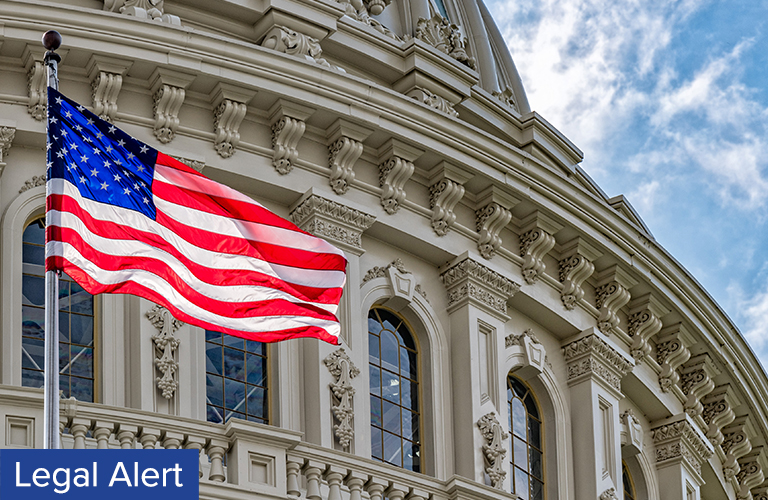
The Coronavirus Aid, Relief, and Economic Security Act (the “CARES Act”), the sweeping coronavirus relief package signed into law by President Trump on March 27, 2020, contains a number of provisions impacting employer-sponsored group health plans. These provisions are generally intended to provide individuals with greater access to health care during the coronavirus pandemic, and many will increase employers’ costs under their self-insured group medical plans. Significantly:
Telehealth. High deductible health plans may waive participant cost-sharing requirements for all “telehealth and other remote care services” (i.e., including services unrelated to COVID-19) without interfering with a participant’s ability to make or receive health savings account (“HSA”) contributions.
This provision applies for plan years beginning on or before December 31, 2021, and is welcome news for many employers eager to expand their employees’ access to safe remote care options.
Coverage for COVID-19 Testing. Group health plans must provide coverage for COVID-19 testing at no cost to plan participants, including tests approved by the FDA and additional forms of testing developed during the COVID-19 emergency period. This provision is effective immediately and expands on the coverage mandate previously imposed by the Families First Coronavirus Response Act (which only required coverage for FDA-approved testing).
Out-of-Network Providers. In an effort to reduce “surprise billing,” plans are required to pay out-of-network providers of COVID-19 testing the “cash price” for such testing, or may negotiate a lower price (to the extent the provider will entertain negotiations). In other words, the plan’s normal out-of-network reimbursement provisions may not be applied to COVID-19 testing. While health care providers offering COVID-19 testing are required to publically post their prices, plans may pay substantially more for these tests under the new rules.
Coverage for COVID-19 Vaccines. Group health plans must provide coverage, at no cost to plan participants, for any “qualifying coronavirus preventive service” – including a COVID-19 vaccine – within 15 business days after the service is recommended by the United States Preventive Services Task Force or the Advisory Committee on Immunization Practices of the Centers for Disease Control and Prevention.
This provision accelerates the deadline that would otherwise apply under the Affordable Care Act’s preventive care mandate and will become effective immediately once a recommendation for qualifying coronavirus preventive services is made.
Over-the-Counter Drugs. HSAs, health care flexible spending accounts, and health reimbursement arrangements may reimburse over-the-counter drugs purchased without a prescription, effective for expenses incurred after December 31, 2019. This provision eliminates the Affordable Care Act rule that prohibited reimbursement of drugs (other than insulin) unless prescribed by a physician.
The CARES Act also contains significant retirement plan relief intended to provide employees greater access to their retirement funds. Our Legal Alert outlining the retirement plan provisions of the CARES Act is available here. We also have a dedicated webpage to provide you with updates regarding COVID-19.
For more information about the group health plan provisions of the CARES Act, please contact your Employee Benefits and Executive Compensation Counsel at Smith, Gambrell & Russell, LLP.

